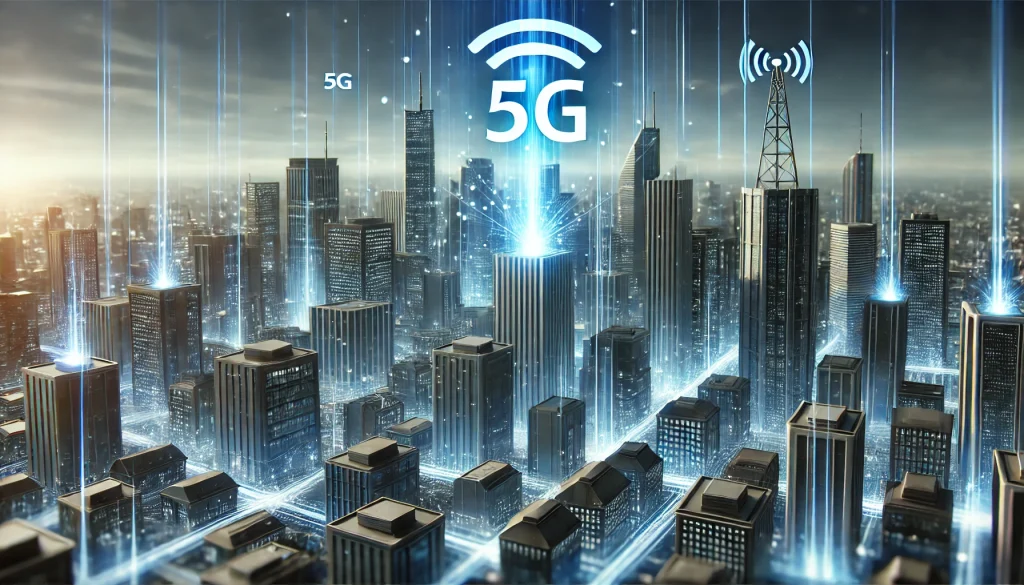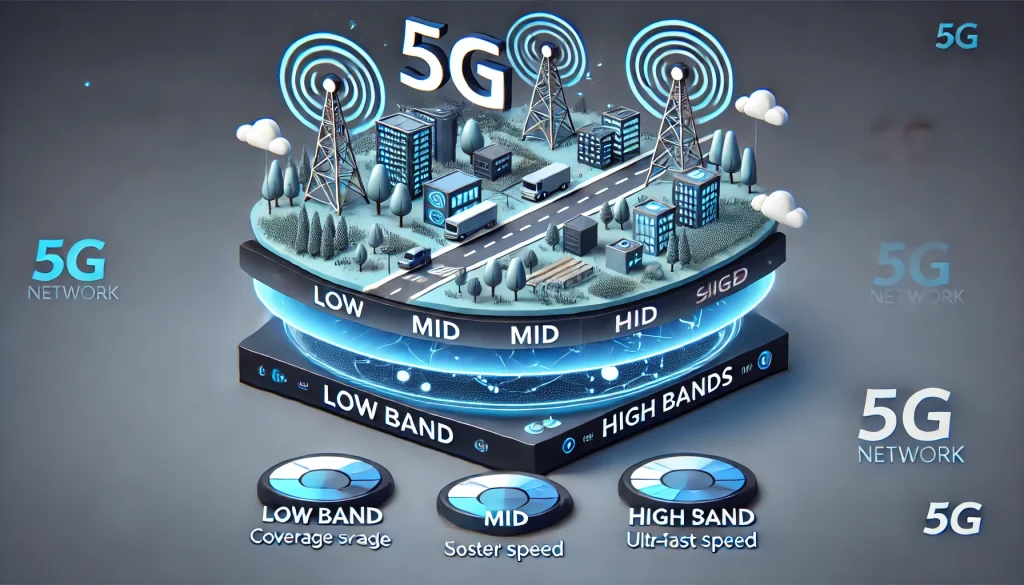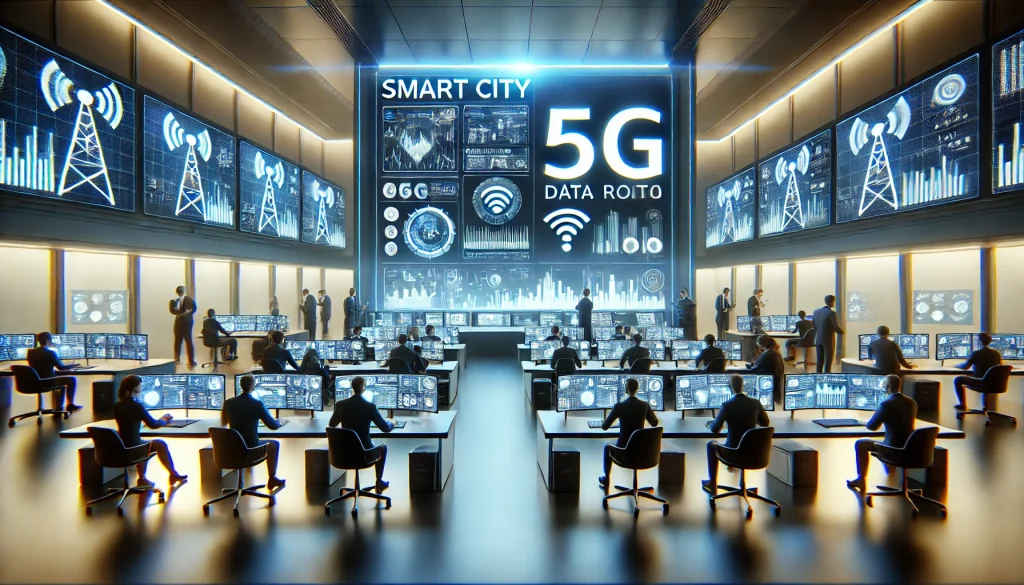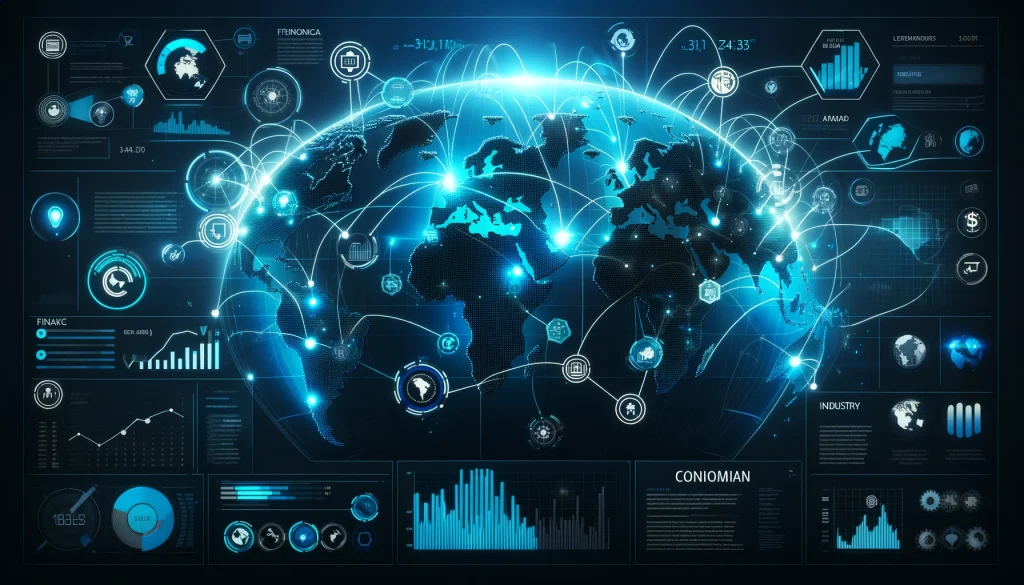
5G Technology is the fifth generation of wireless communication, offering faster speeds, lower latency, and better connectivity. For the economy, 5G is more than a tech upgrade—it drives growth, innovation, and digital transformation. Its impact spans sectors like manufacturing, healthcare, transportation, and finance, leading to higher productivity and new business models.
What is 5G Technology?

5G Technology, the fifth generation of wireless networks, marks a big leap in cellular technology. It offers higher speeds, lower latency, and can connect more devices at once compared to 4G LTE. 5G works on three frequency bands—low, mid, and high—each providing different coverage and speeds. The low band covers a wide area with moderate speeds. Meanwhile,the high band delivers ultra-fast speeds but with a limited range. Economically, 5G is set to revolutionize sectors by enabling faster and more reliable data communication. This is crucial for technologies like autonomous vehicles, smart cities, and the Internet of Things (IoT). Often referred to as next-generation mobile networks, 5G is key to advancing global digital infrastructure.
Key Principles of 5G Technology and Economic Relevance

- Enhanced Mobile Broadband (eMBB): Provides high-speed internet for video streaming, AR/VR, and remote work. It boosts productivity and economic activity.
- Ultra-Reliable Low-Latency Communications (URLLC): Essential for applications needing near-instant data transmission, like autonomous vehicles and industrial automation. It cuts costs and increases efficiency.
- Massive Machine-Type Communications (mMTC): Connects a large number of IoT devices seamlessly. It supports smart cities and industries that rely on data-driven decisions.
- Network Slicing: Offers customized network experiences. It optimizes resource use and lowers operational costs for businesses.
Pros & Cons of 5G Technology
| Aspect | Pros | Cons |
|---|---|---|
| Speed and Capacity | High data speeds and capacity enhance user experience and support data-heavy applications. | High infrastructure costs and energy consumption are challenging. |
| Economic Growth | Drives economic growth through innovation and new business models. | Deployment is capital-intensive, potentially widening the digital divide. |
| Connectivity | Supports massive IoT deployments, crucial for smart cities and automation. | Security concerns due to increased connectivity and potential cyber threats. |
| Latency | Low latency is essential for critical applications like autonomous vehicles. | Interference and spectrum issues can affect performance in some regions. |
Economic Impact of 5G on Global Markets
The global rollout of 5G will boost growth, productivity, and innovation across industries. It could add up to $1.3 trillion to global GDP by 2030.

Market Dynamics and Competition
The deployment of 5G networks is intensifying competition among telecom operators, tech companies, and startups. This has triggered alliances and mergers as companies compete to harness 5G, affecting global markets and investments.
Productivity and Efficiency Gains
5G facilitates faster and more reliable communication, enabling businesses to optimize operations and reduce costs. Industries like logistics, manufacturing, and retail benefit from 5G’s low latency and high-speed data, improving supply chain management and inventory control.
Economic Opportunities in Emerging Markets
For developing countries, 5G offers a chance to leapfrog older technologies, improving digital infrastructure and attracting foreign direct investment. By enhancing connectivity, 5G can help bridge the digital divide, promote inclusive growth, and create new economic opportunities.
Overall, the impact of 5G on global markets is transformative, with the potential to reshape economies, spur innovation, and create new competitive landscapes.
5G Technology and Its Role in Driving Digital Transformation

Smart Cities and Infrastructure Development
Governments and municipalities are utilizing 5G to develop smart cities that rely on IoT. This enables them to achieve an efficient management of resources, traffic, and energy. This promotes sustainable urban growth and economic development.
Industrial Automation and IIoT (Industrial Internet of Things)
In manufacturing, 5G enables real-time monitoring, predictive maintenance, and automated processes, leading to significant cost reductions and efficiency gains. This can boost national economies by increasing the output and quality of goods.
Healthcare Innovation using 5G technology
5G supports advancements in telemedicine, remote patient monitoring, and robotic surgeries, improving healthcare delivery while reducing costs. This can lead to better health outcomes and reduced economic burdens associated with healthcare inefficiencies.
5G Technology Empowering SMEs and Startups
5G democratizes access to advanced digital tools and platforms, enabling small businesses to innovate and compete on a global scale. This fosters a culture of entrepreneurship, driving economic growth and job creation.
By driving digital transformation, 5G plays a critical role in enhancing competitiveness and ensuring sustainable economic development.
Applications of 5G Technology in Economic Sectors
5G Technology’s impact is far-reaching, influencing several economic sectors by enhancing connectivity and enabling new business models:
- Finance and Banking: 5G enables real-time data processing and mobile transactions, boosting efficiency, cutting costs, and improving customer experience in financial services.
- Transportation and Logistics: 5G enables vehicle-to-everything (V2X) communication, improving transportation safety and efficiency, supporting autonomous vehicles, and optimizing logistics.
- Energy and Utilities: 5G powers smart grids and efficient energy management in the energy sector, cutting costs and promoting sustainable development.
- Entertainment and Media: The media industry leverages 5G for AR/VR, high-definition streaming, and live events, creating new revenue streams and business models.
5G’s applications are transforming these sectors, offering significant economic benefits by enhancing efficiency, reducing costs, and opening new markets.
Conclusion
5G Technology is more than a tech upgrade; it is a powerful economic driver that fuels new business models, digital transformation, and growth. This review analyzed 5G’s economic impact, core principles, pros and cons, and its applications across sectors. While 5G has great potential for growth and innovation, it also faces challenges like high infrastructure costs and security risks. Stakeholders must address these issues to maximize 5G’s benefits. For deeper insights, explore resources on 5G’s role in industries like healthcare, smart cities, and autonomous transport.
FAQ
How does 5G technology impact economic growth?
5G technology boosts economic growth by enabling faster data communication, enhancing productivity, and supporting new business models across industries such as manufacturing, healthcare, finance, and transportation. It is estimated that 5G could add up to $1.3 trillion to global GDP by 2030.
What are the key economic benefits of 5G for businesses?
5G offers several economic benefits for businesses, including lower latency, higher data speeds, and improved connectivity. These benefits lead to enhanced operational efficiency, better supply chain management, real-time data processing, and new revenue streams, especially in sectors like logistics, finance, and media.
What challenges do stakeholders face in leveraging 5G technology?
While 5G technology presents many opportunities, stakeholders face challenges such as high infrastructure costs, potential security risks, and the need for regulatory adjustments. Addressing these issues is crucial for fully realizing 5G’s potential in driving economic transformation.
Resources
- New York Times.What is 5G?
- Qualcomm.What is 5G?.
- WIRED.The WIRED Guide to 5G.
- Techopedia.How Will 5G Change the World?.
- PwC. Global Economic Impact of 5G.
